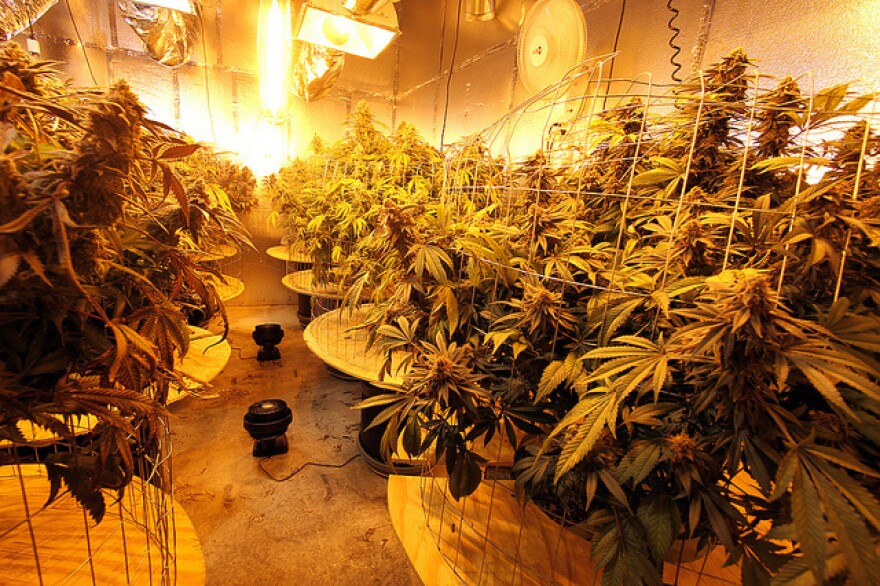The Seattle City Council is embracing a wide-ranging action plan to address climate change. But it’s also considering zoning for a new power-hungry business: indoor marijuana growing.
Seattle officials have been worried about climate change for over a decade now.
Seattle City Council Member Mike O’Brien said reducing carbon emissions is woven into a lot of aspects of life in Seattle. It’s one reason the city funds mass transit, new sidewalks, and even taller buildings that allow people to live closer together.
The City Council wants to make Seattle “carbon neutral” by 2050, meaning the net amount of carbon dioxide emitted must be zero. O’Brien said the biggest priorities are to reduce the use of fuels for transportation and powering buildings.
“We have some control over some pieces, and a lot of the decisions are simply up to the businesses and individuals in Seattle, but if we’re going to become a carbon-neutral city we’re going to need everyone to be doing their part,” said O'Brien.
But there’s a new challenge looming. The City Council is also looking at zoning rules to allow indoor marijuana growing in Seattle. O’Brien said for him, that’s not compatible with addressing climate change.
“The idea that we’re going to take agriculture that traditionally grows outside using sunlight for energy and put that inside buildings and use electricity or other fuels to fuel growing — that creates a big problem for me,” he said.
A study last year in the Journal of Energy Policy found growing marijuana indoors currently sucks up the same amount of energy as two million average American homes. It also found that the industry generates greenhouse gases equivalent to that of three million cars.
O’Brien wants growers to strive for carbon neutrality, although he doesn’t know what that would look like at this point. One way to reduce energy consumption would be to grow marijuana outdoors.
Robert McVay with Seattle’s Canna Law Group represents both indoor and outdoor growers. He says there’s been concern that outdoor crops would be less secure and could prompt some sort of federal crackdown. The state’s initial rules did not contemplate outdoor growing, but McVay believes regulators at the Washington State Liquor Control Board are now open to it.
“Growing outdoors is most likely a greener way of doing business than growing indoors,” McVay said. “I think it’s something that the Liquor Control Board and its staff members understand, and it’s probably a reason that they’re considering allowing outdoor growing.”
The board is currently reviewing public comments on its initial regulations for growing and selling legal marijuana. Many of the comments – including those from Seattle and King County – urge the board to allow outdoor growing in order to conserve electricity.
But outdoor growing is best suited to areas east of the Cascades. Seattle City Council members must decide whether to allow indoor marijuana growing on the city’s industrial property. McVay said growing in Seattle is more expensive because of electricity and the value of the property. But it's where many potential customers and growers already live.
“Just because someone wants to grow medical cannabis does not mean they want to live their lives as a rural farmer," McVay said. "I think there’s a draw to being able to do the work but also to live in Seattle.”
So there’s no shortage of people willing to pay Seattle rents. The Seattle City Council is expected to take up the marijuana zoning proposal in the next few weeks.



